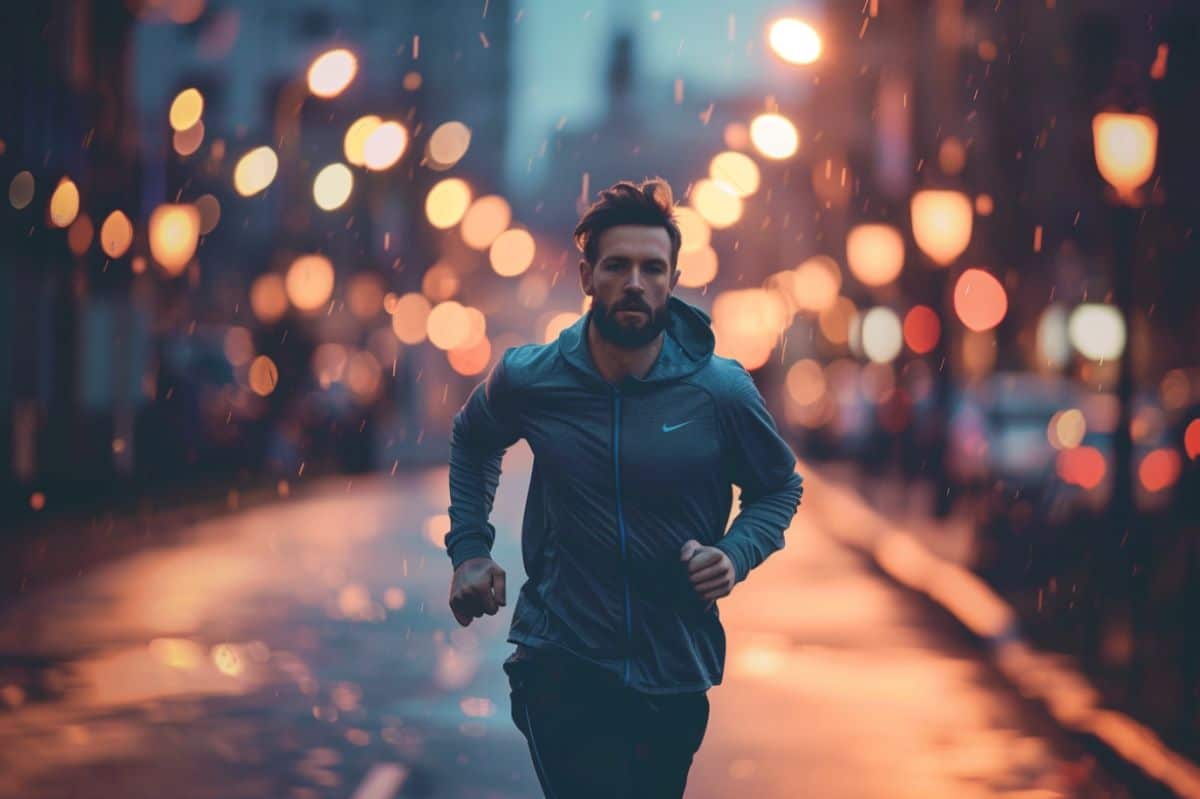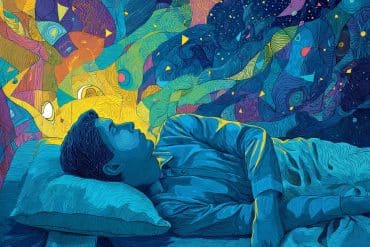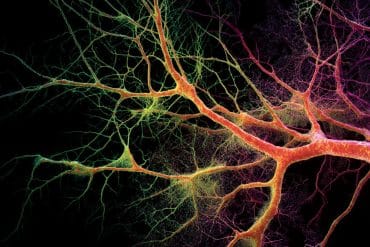Summary: A new suggests that three-minute resistance exercise breaks every 30 minutes in the evening can extend sleep duration by an average of 27 minutes. This practice doesn’t disrupt sleep quality and could reduce cardiometabolic disease risk.
Participants engaged in simple exercises like chair squats and calf raises. Further research is needed to confirm these findings in real-life settings.
Key Facts:
- Sleep Extension: Exercise breaks increased sleep by 27 minutes.
- No Disruption: The exercise did not affect sleep efficiency or cause night awakenings.
- Health Impact: May help reduce cardiometabolic disease risk by extending sleep.
Source: BMJ
Resistance exercise ‘activity breaks’ at night may improve sleep length, suggest the findings of a small comparative study published in the open access journal BMJ Open Sport & Exercise Medicine.
Three-minute breaks every 30 minutes over a period of 4 hours may be all that’s needed, the findings indicate.
Current recommendations discourage intense exercise before going to bed, on the grounds that it increases body temperature and heart rate, which can result in poorer sleep quality, say the researchers.

While activity breaks can improve metabolism after a meal, it’s not clear if they have any impact on sleep. Poor sleep is associated with an increased risk of cardiometabolic disorders, such as coronary heart disease and type 2 diabetes, explain the researchers.
To explore this further, the researchers recruited 30 non-smokers, aged 18 to 40, to their study. All of them reported clocking up more than 5 hours of sedentary time during the day at work and 2 hours in the evening.
To capture habitual physical activity and sleep patterns, participants wore an activity tracker worn continuously on their non-dominant wrist for 7 consecutive days. And they were asked to record the periods they didn’t wear it, the time they went to bed, and when they woke up.
They were also asked to record any physical activity when not wearing the activity tracker, such as swimming or contact sport, and to record activities known to be inaccurately identified by the tracker, such as stationary cycling or yoga.
Each participant completed two 4-hour sessions in a controlled laboratory environment on the same day of the week, starting at around 17:00-17:30 hours, and separated by a minimum period of 6 days.
In one session, participants remained seated for 4 hours; in the other, they did 3 minutes of simple resistance exercise every 30 minutes over the 4-hour period. Afterwards participants returned to their normal, real-life environment.
Each activity break included 3 rounds of 3 exercises: chair squats, calf raises, and standing knee raises with straight leg hip extensions for 20 seconds each, in time with a video recording of a person doing the same exercises.
The activity tracker data showed that before the experiment, participants spent an average of 7 hours 47 minutes asleep, 10 hours 31 minutes sitting down, and 4 hours 55 minutes engaged in vigorous physical activity a day.
Three out of four slept for the recommended 7 hours a night, while the rest slept either less than that (21%) or longer than 9 hours (4%).
The results, which are based on 28 participants, show that after the activity breaks, participants slept for an additional 27 minutes on average, compared with prolonged sitting.
The average sleep duration was 7 hours 12 minutes, compared with 6 hours and 45 minutes after prolonged sitting. And while the time at which participants attempted to go to sleep was more or less the same, average wake times differed. Participants woke, on average, at 7:35 am after the prolonged sitting intervention and 8:06 am after regular activity breaks.
What’s more, there were no significant differences in sleep efficiency—uninterrupted sleep—or the number of awakenings during the night between the 2 interventions, indicating that activity breaks didn’t disrupt subsequent sleep, say the researchers.
There were no statistically significant differences in activity patterns in the 24 hours following each intervention. But compared with prolonged sitting, regular activity breaks resulted in 18 fewer minutes of total physical activity—less than 2% of total wake time.
The researchers acknowledge various limitations to their findings. For example, the study involved small numbers of participants and was conducted in a laboratory setting, which may not reflect real life behaviour.
Further studies involving larger numbers of people in their normal home environment, and for a longer period, are therefore needed, emphasise the researchers.
But they nevertheless say: “These results add to a growing body of evidence that indicates evening exercise does not disrupt sleep quality, despite current sleep recommendations to the contrary.”
And they point out: “Adults accrue the longest periods of sedentary time and consume almost half their daily energy intake during the evening, added to which insulin sensitivity is lower at this time.”
By extending sleep duration, especially in those who sleep less than the recommended nightly total, activity breaks may potentially reduce cardiometabolic disease risk over the long term, they suggest.
The resistance exercises used in their study are simple to do, don’t require any equipment, and can even be done while streaming content, potentially increasing the chances of keeping up the routine, they add.
But they highlight: “While existing research indicates that evening exercise may not adversely impact sleep, the mechanisms by which [it] influences sleep quality remain unclear.”
About this exercise and sleep research news
Author: BMJ Group Media Relations
Source: BMJ
Contact: BMJ Group Media Relations – BMJ
Image: The image is credited to Neuroscience News
Original Research: Open access.
“Evening regular activity breaks extend subsequent free-living sleep time in healthy adults: a randomised crossover trial” by Jennifer T Gale et al. BMJ Open Sport and Exercise Medicine
Abstract
Evening regular activity breaks extend subsequent free-living sleep time in healthy adults: a randomised crossover trial
Objective
To determine if performing regular 3-min bouts of resistance exercise spread over 4 hours in an evening will impact subsequent sleep quantity and quality, sedentary time and physical activity compared with prolonged uninterrupted sitting.
Methods
In this randomised crossover trial, participants each completed two 4-hour interventions commencing at approximately 17:00 hours: (1) prolonged sitting and (2) sitting interrupted with 3 min of bodyweight resistance exercise activity breaks every 30 min.
On completion, participants returned to a free-living setting. This paper reports secondary outcomes relating to sleep quality and quantity, physical activity and sedentary time which were assessed using wrist-worn ActiGraph GT3+ accelerometers paired with a sleep and wear time diary.
Results
A total of 28 participants (women, n=20), age 25.6±5.6 years, body mass index 29.5±6.7 kg/m2 (mean±SD) provided data for this analysis. Compared with prolonged sitting, regular activity breaks increased mean sleep period time and time spent asleep by 29.3 min (95% CI: 1.3 to 57.2, p=0.040) and 27.7 min (95% CI: 2.3 to 52.4, p=0.033), respectively, on the night of the intervention.
There was no significant effect on mean sleep efficiency (mean: 0.2%, 95% CI: −2.0 to 2.4, p=0.857), wake after sleep onset (1.0 min, 95% CI: −9.6 to 11.7, p=0.849) and number of awakenings (0.8, 95% CI: −1.8 to 3.3, p=0.550). Subsequent 24-hour and 48-hour physical activity patterns were not significantly different.
Conclusions
Performing bodyweight resistance exercise activity breaks in the evening has the potential to improve sleep period and total sleep time and does not disrupt other aspects of sleep quality or subsequent 24-hour physical activity. Future research should explore the longer-term impact of evening activity breaks on sleep.
Trial registration number
Australian New Zealand Clinical Trials Registry (ACTRN12621000250831).






